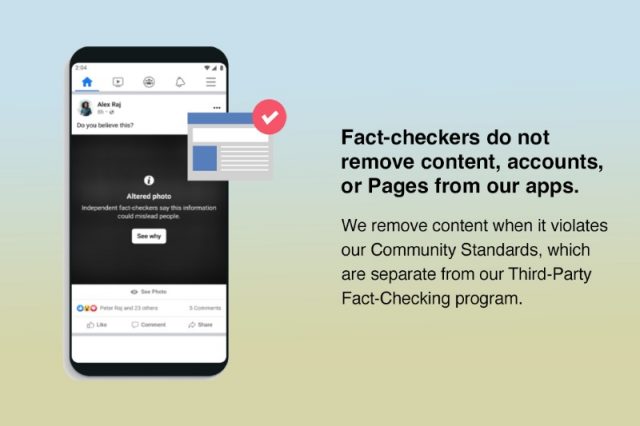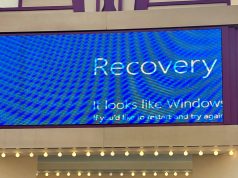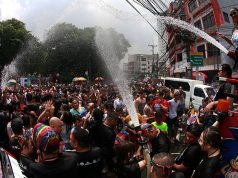Facebook recently became the target of comment section protests among political supporters of a few candidates running for elections due to its takedown of content and pages violating community standards.
The official page of Meta, Facebook‘s parent company, posted about its three-part strategy to address misinformation on its platform when Filipinos flooded the post with comments riddled with accusations against Facebook’s fact-checking partners.
Meta’s strategy for fact-checking
In a statement on April 25, Meta explained that its three-part strategy to combat misinformation comprises three steps—remove, reduce and inform.
Its third-party fact-checking program is part of this approach.
“We work with independent third-party fact-checking partners certified by the non-partisan International Fact-Checking Network,” Meta said.
The company pointed out that fact-checkers do not remove the content or the accounts themselves.
Facebook’s team is the one that removes or takes down content based on its assessment.
“Fact-checkers do not remove content, accounts or Pages from our apps. We remove content when it violates our Community Standards, which are separate from our fact-checking programs,” Meta said.
The social media giant further stated that fact-checkers can only rate posts.
It would then be up to Facebook’s team to reduce the post or the page’s reach.
“When a fact-checker rates content as false, we significantly reduce that content’s distribution so that fewer people see it, apply warnings, and misinformation labels to notify people who try to share it,” Meta said.
“When Pages, groups, accounts, or websites repeatedly share content that’s been debunked by our fact-checking partners, we reduce their overall distribution,” it added.
A link to Meta’s third-party fact-checking program page was also provided on the post.
Different reactions, discussions
Some Filipinos trooped under its comments section to leave negative reactions addressed to its chosen fact-checkers in the Philippines.
“Do you really know these values credibility, integrity, and trustworthy? It’s a shame to engage Rappler and Vera files as fact checkers,” one user said.
“You should fact check your own fact checkers. The ones in the Philippines are laughable. I hope our government create laws that would put you in your place,” another user commented.
On the forum r/Philippines, some Reddit users told critics to switch to a new platform if they could not handle being corrected with facts.
“Edi huwag silang gumamit ng FB, gumawa sila nang sarili nilang social media,” one user said.
Rappler and VERA Files are signatories of the International Fact-Checking Network’s Code of Principles.
The IFCN at Poynter is launched in 2015.
To have an IFCN signatory status, an organization should “regularly publish non-partisan reports on the factual accuracy of statements by public figures and prominent institutions and widely circulated claims in text, visual and other formats focused primarily on claims related to public interest issues.”
Relating to the PNA takedown
Others also recalled the recent takedown of some posts of the state-run Philippine News Agency and even the ones from its writers and editors.
“By the way, why did you take down posts and flagged the posts of the Philippine News Agency? And you’re doing that when we’re so close to the election and without an explanation?” one user commented.
PNA’s posts were previously flagged and removed from the platform before midnight on April 23.
This incident happened on both PNA’s main Facebook page and the posts from its editors and writers.
On Sunday, April 24, PNA issued an update that its page has been restored, including the posts that were also previously taken down.
READ: ‘We’re back’: PNA says after stories get flagged for allegedly going against community standards
A spokesperson Meta told Philstar.com that these restrictions were the result of its “automation system”, not its fact-checkers.
“Other Facebook Pages that have previously shared these links, would see their posts flagged as well. We are investigating and working to resolve this issue,” Meta was quoted by Philstar.com as saying.










